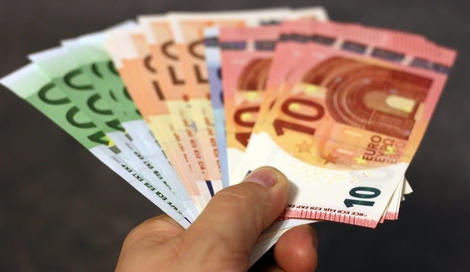Here’s Cultural Attitude When It Comes to Generosity You Should Be Aware Of
Western View:
Generosity is a gesture, not an expectation.
Western culture seems to give credence to generosity as a gesture of good will, or a social ritual. For example, in a large gathering of friends at a restaurant or a bar, offering to pick up the tab is a ritual social display of generosity. But nobody really expects the one offering to pay the whole bill. What’s important is the gesture – not the actual paying or the amount of money involved. Because in Western cultures, fairness is seen as more important. As a matter of fact, the expected ritual response for such an offer is to negotiate fairness – either the group will insist that the bill be split so that everybody pays their fair share, or they will bargain and insist that they pay the tip or pick up the check next time.
And if you think about it, it’s also common in Western culture to be mistrustful or suspicious of generosity. The feeling seems to be that if you accept someone’s generosity, you’re somehow obligated to them – you owe them something. And this feeling of obligation can make many Westerners uncomfortable, as it can be perceived as a threat to their ability to be independent. After all, Western culture emphasizes the individual and his freedom to choose for himself.
Thai View:
Generosity is expected as a display of your willingness to provide for the group.
Thai culture runs on “Naam Jai,” which is difficult to translate literally. It means “heart flow,” or “juice of the heart.” It refers to both an individual act of generosity and a duty to the group. Thai culture, emphasizing the importance of the group over the individual, celebrates any opportunity to display generosity. In our example above, if a group of friends gather in a restaurant for a meal, a Thai guy looks forward eagerly to the moment when the check is presented to him for payment, pays it cheerfully, and feels good about it because it reinforces his status as a member of the group. In a collective society like Thailand, the group puts expectations on individuals, who welcome and appreciate the duty. It reinforces their position and belonging in the group.
How this cultural difference can affect your relationship with a Thai lady?
Naam Jai is a big cultural difference that needs to be understood by any Western man looking to partner with a Thai woman. Sooner or later, it will collide with your Western values, and you’ll suspect you’re being taken advantage of. I know that as a man with wealth and means (at least more wealth and means than the average Thai) you actually feel fine about picking up the bill or providing for someone without. It’s the expectation that’s placed on you that becomes the problem. It’s not about the money – it’s the expectation that irritates you.
If you can discuss it reasonably and calmly with your Thai lady, and help her understand that the concept of naam jai is completely foreign to you, your behavior will make much more sense to her and the road to compromise can be found.
Unless of course, you are being conned.
Case Study: Our friend’s first experience with Naam Jai.
Our friend visited his Thai girlfriend’s family for the first time, fully aware that it was an important occasion for her. He was happy to be expressing his commitment by being presented to her family – a very big deal to a Thai family.
So, a family dinner was arranged at a local restaurant. But more than just her immediate family attended. There were extended family members, neighbors, , and even passersby (or so it seemed). Everyone was welcome to come to this huge feast.
At the end of the night, when the bill came to the table it was passed down to the guest of honor (our Western friend) with plenty of smiles and nods of enthusiasm. Even his girlfriend seemed to be “in on it” — happily smiling and nodding along with them.
Our friend was shocked. He said he felt trapped, cornered and conned, offended at the thought he had to pay the whole bill by himself. The word “freeloaders” came to mind.
So he paid, but felt some stinging resentment and hurried to get away from the mob of smiling faces that seemed to be leeching off him.
He shared his story with us and our male Chinese-Thai friend over coffee back in Bangkok.
And we all enjoyed a laugh at his expense.
Nom, our Chinese-Thai mate explained.“Don’t take it too personally. It’s not because you’re Western. If your Thai girlfriend had brought home a Thai guy, he would’ve been presented with the bill, too. Because it was a chance to show Naam Jai. His chance to get the honor of providing for the group.”
He went on to explain, “a Thai guy is going to understand his opportunity to provide and demonstrate his Naam Jai in front of his girlfriend, her family and anybody else who’s there, and he’s going to love doing it. It’s his chance to step up, and everyone understands the honor of handing him the bill. “
Our Western friend admitted that it wasn’t the money that bothered him about paying the restaurant bill. What bothered him the most was the expectation that he had to pay.
Once he understood that being expected to pay actually meant that he was accepted as part of his lady’s family, it was a little easier for him to take.
We are a matchmaking company that has built an internationally respected reputation for providing the highest quality dating services for Western guys seeking a long-term, committed relationship with a Thai woman as well as Visa Assistance.
We also host Dating Events where you can meet single, lovely and trustworthy Thai ladies who are looking for genuine relationship.
Interested to know what we do? Send us a message and we will be happy to chat.









